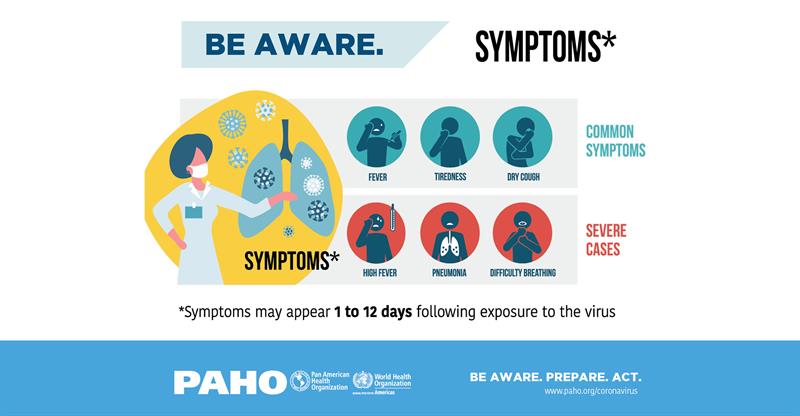DESPITE DOWNWARD TRENDS, THERE ARE ALMOST 4,000 DEATHS A DAY IN THE REGION.
 Health workers are especially vulnerable to COVID-19, and in the Region of the Americas, “We have the highest number of health care workers infected in the world,” PAHO Director Carissa F. Etienne said during a press conference today. “Our data shows that nearly 570,000 health workers across our region have fallen ill and more than 2,500 have succumbed to the virus.”
Health workers are especially vulnerable to COVID-19, and in the Region of the Americas, “We have the highest number of health care workers infected in the world,” PAHO Director Carissa F. Etienne said during a press conference today. “Our data shows that nearly 570,000 health workers across our region have fallen ill and more than 2,500 have succumbed to the virus.”
With almost 13.5 million COVID-19 cases and over 469,000 deaths reported in the Americas, including around 4,000 deaths a day in our region, the scale of this pandemic is unprecedented. “No other group has felt this more acutely than the very men and women who make up our health workforce,” Etienne said.
She noted that “in the U.S. and Mexico—which have some of the highest case counts in the world—health workers represent one in every seventh case” and these two countries account for nearly 85% of all COVID deaths among health care workers in our region.
To combat these trends, “countries must ensure that health workers can do their jobs safely. This will require maintaining sufficient supplies of PPE and ensuring that everyone is effectively trained in infection control to avoid risking their own health.”
Countries should also ensure safe working conditions and fair pay for health workers, highlighted Etienne. “This is particularly important for women, the majority of our health work force, who must be supported to fully participate and lead the response to the pandemic.”
The PAHO director cited several reasons for the high rates of infection in health workers in the Americas, noting that as countries scrambled to respond to the virus, “Many health workers were redirected to the outbreak response without sufficient training to protect themselves as they were treating COVID 19 patients.”
As patients surged, “hospitals became overcrowded and many were too slow to implement triaging protocols. This meant that COVID 19 patients were exposed to others who may have been seeking care for different conditions, and soon everyone carried a risk of infection, leaving health workers more vulnerable,” she said.
Early in the pandemic, supplies of Personal Protective Equipment were scarce. “Health workers were forced to reuse masks and gowns, seek alternatives or forgo protection altogether to care for those in need,” Etienne said.
Maintaining sufficient supplies of PPE and ensuring that everyone is effectively trained in infection control to avoid risking their own health is key, she said. PAHO has been supporting countries in building designated triage and case management zones to protect health workers and patients. “We have also donated over 31 million masks and more than 1.4 million gloves and gowns to protect our frontline response.”
Months of operating under enormous pressure have also had strong mental and psychological impacts on health workers, including isolation from family and friends. “Shockingly, dozens of health workers have been assaulted over the last few months as a result of the public’s misplaced fear, misinformation or frustration from this pandemic,” she added.
Etienne also cited a recent Epidemiological Alert from PAHO, which says “In light of the increase in cases and deaths of COVID-19 among healthcare workers in the countries and territories in the Region of the Americas, the Pan American Health Organization/World Health Organization (PAHO/WHO) urges Member States to strengthen the capacity of healthcare services across all levels and to equip healthcare workers with the appropriate resources and training in order to ensure an adequate and timely response to the pandemic within the healthcare system.”